|
Sho Luv stops by again.
We're discussing a situation "where I believe some profilin' was takin' place," as he puts it. He'd been chatting on the phone on an Eastside route. "Were you loud?" "No, man, I was conductin' a conversation in a regular tone," "Good, okay, good," "When the driver turns and says, 'you need to get off the bus. I need you offa my bus.' And I said, driver, what I'm doin' wrong?' And he says, 'this is my bus. And I say you got to get offa my bus 'cause you're talkin' on the phone.' But check this out. There's another lady also talkin' on her phone. He don't say nothin' to her!" "And you weren't bein' loud now," "No, neither me nor the lady was loud. I think about stuff like that." "That's cool. Lemme guess, she was white." "She was white. And he keeps sayin,' 'this is my bus,' and I say, ' Driver, I don't think you can kick me out over this. You got another person here talkin' on the phone just the same as me.' So we wait around while he calls security." "He calls the coordinator over talkin' on the phone? I can't believe that!" Definitely the Eastside. No downtown driver would bother; there's too much else to worry about. "And here's the kicker, right? She, the lady herself," "The lady herself," "Asks him why he's tryna get rid a me and not her, though we both doin' the same thing!" "Well, that's it then, man! Case closed! If we got her goin' on the record like that, well, if that's not profiling I don't know what is! What happened when the supervisor got there?" "Nothin'. He came over and rolled his eyes." "Nothin' else to do. Huge waste of resources." "And driver just kep' saying, 'this is my bus. I can do what I want on my bus.'" I steer around a pothole. "Man, I'm sorry that took place. That's an embarrassment, in this day and age. I apologize. And you know, the thing is, it is not his bus." "No, it's not," "This bus does not belong to me; it belongs to the people," "Exactly!" "My entire paycheck comes from all these good folks paying taxes. Without them I would be nowhere... You know he doesn't drive that thing home and park it in his garage at night..." We laugh over the image. Both of us are the choir, and we're preaching to each other. There can be a benefit in that sometimes. I can sense a load released from his chest as he bids me farewell. Some measure of balance has been restored.
2 Comments
It is but a distant memory now.
Elementary school, off for the weekend. I was on a 358 (a brand new route at the time, replacing the old 6/359), and we had nearly completed the long trip in from the northern reaches of Aurora to downtown- but as we've noted before, it's never too late for things to go terribly awry. Here we are at Pike, approaching the zone, everyone rising to deboard, when we realize there's a man on the floor, convulsing in the aisle. It's another epileptic seizure. Even at that age, I'd already witnessed the same on other buses (interestingly, almost exactly the same incident would take place over a decade later, at the same zone on the same route- except in that case the guy wasn't wearing pants!). While we waited for aid to arrive, I wandered outside the coach. Passengers were still filing out, and the driver, a thin, mild-mannered white face in his fifties, was out of his seat, moving about inside as he assisted passengers. I watched through the windows. He seemed to be looking for something. A young black man next to him, dressed in dark clothing, reached to the floor and pretended to start putting something in his jacket. Then he handed whatever it was to the driver, and they both began laughing together. The man said something, and the driver responded, and they laughed harder. "Must be 358 humor," I thought to myself, not understanding. My elementary-age self stood there a moment longer, pondering. This I had not seen before. The seizure I could easily grasp; it was familiar. But what about this? Don't those two age-status-race-authority roles usually avoid each other, or ignore one another, or act in opposition? I was a child. All children are born knowing race has no worth in the measure of a man. I could already see that adults often felt differently; but not these two. They were behaving just like my classmates on the school playground- which is to say, completely ignorant of race and class. My heart beat faster, and a joy rose up in my throat. Looking at them, anything felt possible. Opposite ends closing a loop, existing in union, laughing together like a couple of regular fellows. Images like this can have quite an impact. They give shape and heft to the notion that surfaces count for little. Those two men will never know the impact their interaction had on my young self. It was only appropriate that the sun was shining. I still feel that rush when I see such tableaus, or take part in such an interaction. The differences in culture, speech, clothing and the rest- when I see these ignored in favor of the commonalities of being human, a deep hunger is satisfied in me. It's very nearly a physical sensation, this world-affirming delight, and it thrills me unreasonably; this story is the first instance I can recall experiencing such a feeling. You'll have to forgive me the number of times I've written about people of different race or income groups interacting harmoniously. I never tire of it. In light of how often we see the opposite, I'm compelled to share. PS- That's me in the photograph, around 12 years old, wishing I was driving that (now-defunct) 4000 series! First day back on the 358. We're filling up, and cruising into Virginia. A ragtag, kaleidoscopic assemblage is milling about, as usual.
I see gold teeth glinting in the crowded afternoon, and can't help grinning to myself. I know who that is. "This boy don't HAAA' no license!" he hollers, very nearly frightening the people on the sidewalk as they file in. "Heeyyy!" I yell with enthusiasm. From the looks on the passengers' faces, I can see my response is unexpected; most of them don't know me. Yet. "Somebody call th' authorities, we got us a underage bus driver here!" It's his refrain, and I enthusiastically play along. "I got no idea what I'm doin'! I was walking home from elementary school, somebody gave me uniform, and I found this empty bus here..." "Don't let this boy get away with this! You see this little kid here?" he says to unsuspecting lady. Mock despair: "I know how to drive trolley buses, but I can't grow no beard!" "Somebody done gave him th' uniform. You know he only old enough for a learner's permit!" "Good to see you again." "How's it goin'?" A ladyfriend of his boarded with him, and she calls him from the back to join her, but he's too elated by the budding sense of community at the front: "Hang on, girl, I'm talkin' to my boy here!" "That's my sister," he says in a practically apologetic tone. "You at least gotta grow a mustache or somethin', this' gettin' outta hand," "Oh, you know it. I need a top hat. Glad to see you're still around!" We talk of our shared hometown of LA, where he had recently visited. We glory in recognizing the streets and locations the other is talking about. He tells me of a club at Sunset and Ivar he was particularly pleased to visit- "we got there early, 'cause it's crowded. Got to get there around 4 or so." "Hang on. This place is jumpin' at 4pm?" "Oh yeah. And lemme tell you, them younger boys was hatin' on me, man!" Meaning the women found him attractive. "See, you still got it!" "Those lovely ladies walk right past them, comin' over to me!" "Look at you!" In a more serious tone I say, "confidence. That's what it is." "Yeah. How you carry yourself." "Don't matter how old you are, all the other stuff people say," "Yeah, I took my son, and he was gettin' angry! At me!" We laugh over the absurdity of the situation. Outside a diviner is walking amongst some construction rubble, evidently searching for precious metals. "Oh man, will you look at that. Lookin' for gold at Aurora and 65th!" "I think maybe someone's goin' home empty handed tonight!" "Poor guy better hang on to that day job!" His sister comes up to the front after a time, and I introduce myself. "Lovely to meet you, young lady. Thank you both for stoppin' by!" She's all compliments. We continue blabbing on matters of minimal consequence. There was a transcendance in the air, something special; the chatter was as profane as ever, slurred words and dumb observations adding up to something larger. They say transcendance lies at the intersection of the mundane and the sublime. We weren't really talking about clubs or underage jokes; we were expressing a generosity for each other, a respect and love for this happy life, strengthening the bonds of attitude, connections between each other and between ourselves and the fading twilight, the fresh-cut grass, the buzzing gnats and the world at large. That was the meaning of those sounds. Complimenting Sho Luv's (incredibly, the name he goes by) hat meant more than that. It was an affirmation of years spent on this Earth, amongst each other- laughing, complaining, talking wisdom and nonsense. There is something elusive underneath such chatter, at times better hinted at through surface talk than with the blocky nerve endings of confessional dialogue. It's not about the content of the words, but their texture, the sliding meanings that drift underneath them. From this conversation, I probably don't need to point out that this is on a 358, but I suppose I will anyway! We're southbound, between 160th and 155th, by Rich's Used Car Corner and Chevron Gas. There's an older woman with a sorrowful voice who would like a question answered.
"Bus driver?" "Yeah?" "How come people don't have tails like other animals?" "What's that?" "How come people don't have tails like other animals?" "I'm sorry, I'm having trouble hearing you." "How come people don't have tails like other animals?" "Uh," The man next to her, in shades, handlebar mustache, and cowboy hat: "She's asking why people don't have tails." "You know, that's a great question. I have a couple different answers for that," I say in a meaningful voice, working my mind into a space where this question is entirely reasonable. "One is that tails in animals are often for balance, but in animals that stand vertically like us, we don't need a tail because it would throw us off balance, but-" into the mic: "next stop is 155th, by Safeway-" and back with her- "but in more horizontally-oriented animals like cats, you need tails to balance things out so they can move around easy." "Oh." "Yeah." "Have you ever heard of anyone who had a tail?" "Yeah, actually.. there's a guy who had surgery to make himself look like a cat, and another guy who got surgery to look like a lizard, but I don't know if either of them have tails." (Further research reveals they don't; nor was I aware of cases of abnormal vestigial tail-like growths. I'm falling behind on my human tail knowledge). "Can he move his tail?" "The lizard guy?" "No, the cat guy. Can he move his tail back and forth?" "You know, I'm not sure. I don't think so. It's just made of, it's not, well, I don't even know if he has one." "Oh." "Lizards can regrow their tails." "Why?" "If they fall off." Cowboy hat: "I think we don't have tails because then we would need different pants!" "You know, you're right. That's gotta be it," I say. "Be too much trouble. I mean, where you gonna put that thing?" The lady is still worried. "Have you ever known or heard of anybody who was buried alive?" Cowboy hat takes over, answering in the affirmative. Then we talk about his cat, which he firmly believes is a mix between a Lynx and a jackrabbit ("well, I think I'm sure,"), and who is tailless. He confirms it by showing me a picture on his phone. "Excellent," I say. We continue down the wide expanses, having rational, thoughtful conversations about tails, cemeteries, pigs and helicopters. The high school kids from Ingraham get on, watching my smile- and my straight face. I'm in wonderful company. I'm riding the 124 late one evening, chatting with the driver. Rakesh is one smart guy. It's dark in here; just one row of the fluorescent bulbs is on, and up front on a 2300-series, what with those blue lights, it's always dim. We're talking photography, sharing in the roving expanses of the late hour. Orange sodium lights pass us by as we make our way through town. I'll miss that orange glow.
By now you've noticed all the streetlamps slowly being replaced by cheaper and more efficient LED bulbs, which give off a dim whitish-blue glow; but for me, that orange is so firmly ensconced in my conception of the urban nighttime. There's an ambience it contains specific to nothing else, and you painters out there will appreciate the way low-pressure sodium collapses color perception in interesting ways. Regardless, as we approach Union a young man comes forward from the very back. He's dressed in armor- thick, bulbous headphones, a baseball hat pulled low, with enormous reflective sunglasses useless at this time of night for any purpose other than covering one's own eyes. From his invincible cocoon of a shield, he leans in close to Rakesh, speaking quietly. I'm in the chat seat, and I can't even hear the man. Evidently there's a sleeper in the back. To me this hardly qualifies as newsworthy; why, as a young armored man, with your headphones and hip jacket, would you trouble the driver about it? Maybe he's just awfully considerate. It's certainly thoughtful of him. Or perhaps this sleeper is a little different from the rest. The latter turns out to be the case. Rakesh walks back there, and after a moment I follow. I'm curious. Our movements draw the attention of the rest of the crowd- ten, maybe fifteen people in here; a motley but subdued crew. Evenings on Pac Highway have a singular atmosphere, similar to the no-holds-barred environment of the 358 but slightly younger, and more ethnic; there's definitely a whiff of where this bus has just come from. The dim lights amplify the sensation; we're in another world here. Armored Youngster, still too cool for school, points out the sleeper in question, and the motley crew keeps watching from all directions. He's draped against the seat, head pushed up in the corner by the window, formless, melding with the surfaces like a chameleon who's trying to hide by changing color but can't. Rakesh goes through the routine of trying to wake a sleeper; he and I make noise, first speaking, then clapping, then gently pushing on the back of his chair, and then not so gently. Nothing works. It's an East African man of no more than thirty, looking emaciated to the point of starvation; his angular cheekbones protrude so far they seem to pierce the skin. I notice how his head is unnaturally cocked back, not unlike that of a CPR dummy; nobody sleeps like that. I took in all these observations, but they aren't the first thing I noticed. The first thing I noticed was, his eyes are open. Wide open, body frozen, staring straight up. Completely unresponsive to light or sound. The faint light in here offers a feeble glimmer in his pupils, but no spark; this isn't a sleeper. This is a body. He's dead. The men around us- no women sitting in the back of a 124 at this hour- begin to come closer. What's going on? Can't we wake him up? The ramshackle assemblage, hulking and disheveled, begins to form a village, as we all try to rouse him. He looks dead; he sounds dead; but it doesn't matter. Who cares? The human in you still makes the effort. We all come from the same place. I keep clapping, right in the body's face; another man pounds the back of the headrest; Armored Man takes off his headphones. There's a united feeling among all of us, multifarious group though we are: the shared sensation that we, no matter what roads in life led us to this night, we would really just like for this person to be alive. Finally, somebody- I forget who- decides to touch the body. It's against the rules for safety reasons, but with this many people helping out, safety's no longer an issue. We don't need to worry about him reacting violently anymore. Anyways, he's dead. Someone reaches to his neck and presses against the jugular vein, firmly. "Aaoghuu," says the man's throat, his face still expressionless. We're elated. A collective sigh of relief, audible and true followed by exclamations- "Whew!" "Awesome!" "Okay!" "Good," I say, beaming. "I wanna hear that! That's a great sound!" The young man with sunglasses smiles wide. It's the only sound or movement we are able to elicit from the "sleeper," but it is enough. He's alive. Of course it's Rakesh's last trip of the evening. No matter what time of day, things like this always seem fated to happen on the last trip. I left, along with most of the others, as Rakesh called for an aid response. Everything was fine now. A phlegm-filled grunt never sounded so good. Hello, Friends.
There's something I'd like to tell you. I am writing a book building on the stories on this blog. I'm very much looking forward to when you can read it! Enjoy the day, Nathan When I was young(er!) I used to come up with excuses to plan elaborate bus rides around the city. They were the flimsiest of reasons. "I think I'll use the bathroom," I remember telling my parents once in Redmond. I then proceeded to get on the 251 to Seattle and the 307 to Lake City, a journey totaling over two hours. There's a restroom in the Fred Meyer there, after all. To my preteen mind it made sense. Evidently I didn't need to go too badly!
Photographers do this. In the tradition of Dorothea Lange, I once drove back 50 miles to take a picture of a snow-covered cornfield in Wyoming I had passed hours before. But sometimes it wasn't about the camera so much as the unquenchable thirst of being, in the Heideggerian sense of Dasein. To be made alive by existing as observer and portion of the writhing human maelstrom... I know I learned a lot while in school, but I have a sneaking suspicion I gained more by wallowing about in the real world of the street, joyriding on the 7. Too much of one or the other would be a loss; I'm thankful for having done both. Once my friend Brian called me. "Hey," he said. "I kinda feel like going to Eastern Washington. Do you?" "Yeah, come on man, let's go," I replied. I didn't ask why until we'd been on the road nearly an hour. The ostensible reason for this expedition? "I need to get some hot sauce," Brian intoned. Oh, yeah. That's reason enough for me! There's a fruit stand on Thorp highway that has the best hot sauce in all the land, according to him. We talked the road up all the way, and found ourselves on dirt pathways in forested mountains we never knew existed. I made what I thought were some excellent photographs, and we had a grand old time. The clouds out there... The impulse that leads me on such paths is not unlike the one which led me to email my friend in Colorado before heading out the door in Seattle to my car with nothing but a map, some CDs, camera and film. The email was a note which read, "Anna- I'm coming over. See you soon." A couple weeks and several hundred photographs later, we met at her residence in Fort Collins and had a terrific lunch. I don't do things like this all the time- and yet, in a smaller way, I do. Road trips fuel the soul in ways that are obvious; but the engine behind that thirst, the great and endless search to pierce through the fabric of our known understanding, to confront "the unknown-" this hunger is the same as that behind spontaneous road trips or nonsensically circuitous expeditions around King County. When I travel to distant lands, I find what I remember most clearly are not the notable objects and moments I so love to photograph. Those memories become clouded by the photos themselves, which take over in my mind. No, what sticks are the moments in-between, when the camera wasn't available. The day's last light peeking through the blinds, casting the shadows of a potted plant against a wall; a man and a woman squatting on a marble floor outside, rinsing pans over a washbasin. An empty parking lot flashing by through the train windows, maybe somebody walking around out there. Bus driving might seem like a monotonous job, but it really isn't. The 358 and routes like it aren't just different every day; they change with each passing minute. I try to be present for all of that. Traveling in new or changing territory, be it near or far, is unique from all other human experience by its definition: it is the act of being confronted with an unending stream of moments, places and things, for the first and probably the last time. It's about as close as we can get to the sensation of early childhood, where you were bombarded with so much new stimuli, and attempting to process it all gave you that heady rush we adults call being thrilled to be alive. That is the reason to go to Thorp Fruit Stand. It has nothing to do with hot sauce. It's the reason to get on the next bus, no matter what it is, having no clue where it's going; a reason to take the long way home. You never know what you might see. And yet, this craving runs deeper than merely a desire for the new. It is a thirst to find the confirmation that yes, we can and do know ourselves to exist. Regardless of the surroundings or challenges. We throw ourselves into new situations thinking we're searching for differences, but what we really want to see is the commonalities that still remain, because they prove our existence and indicate a recognizable structure in the morass of contemporary human life. There can be great comfort in this. You see behind the layers now, layers which you thought defined you. You've taken the variables away, searching for the unknown, and there you are- all the more yourself. "Hey, listen, man. I can't find my pass."
He looks ready for rejection. We're at Aurora and 115th northbound. It's afternoon, but the day laborers are still there, milling about in the background, giving life to the Home Depot parking lot. I've always wished I could buy them all breakfast. One day I'll to show up with a bucket of hash browns. Those passing thoughts flash by in an instant; to the man in front of me I say, "that's fine. Thanks for sayin' somethin.'" After a moment I add, "I appreciate that." He's white, forties or fifties, hair growing out, likely younger than he looks, aged by the vagaries of life, in a dirty pullover and faded sweatpants. Now, "I can't find my pass" is a code phrase. It means, "I don't have any money, but I want to ride." Sometimes there are variations in its code meaning. When someone says, "I lost my transfer," it sounds almost like they're telling you they lost their transfer. That is incorrect. They are appealing to the better angels they hope you have. They are speaking to you in the language of the street. In contemporary American English, what they're really saying is, "I've experienced some inconveniences today. It might be possible for me to pay the fare at this time, but it would be a hardship that might exacerbate said inconveniences or introduce new ones. This inconvenience could be quite mild- my transfer got water on it, or I left it at the bottom of my girlfriend's backpack- or it could be severe. I might have $3 to my name for today that I could very well use on fare, but would really prefer to use to buy coffee because I'm about to work a 12-hour grave shift as a parking lot attendant, and I don't want to get fired for falling asleep. Perhaps I have a bank card and would like to make change, but that would require me to miss this bus, and thus miss my connecting bus, and by extension be late to pick up my kids from day care, which will result in them calling CPS and interfering with my custody privileges, reducing the amount of time I get to spend with my children for the rest of their childhood. Perhaps I am angry because I was humiliated by my case manager and want to prove to myself that I can still get a break in life. It is also possible that I actually do not have money to pay the fare, but I'm embarrassed about it, and am attempting to preserve what small shred of dignity I can still muster." In short, they're asking to be acknowledged as a fellow human being, and afforded the respect of being given the benefit of the doubt. Sometimes I tell drivers, "I might have ten people ask me for free rides today. Maybe nine of them are scamming the system out of laziness or mild necessity, and only one of them actually, truly needs that break today. But I'll never know which one of those ten that person is. All of them are benefiting, which is ultimately good, but I want to make sure I reach out to that tenth person and give them the help they sorely need. And the only way to successfully do that is to accept all ten people (and of course follow the policy of avoiding fare disputes)." So I offer those who ask me the code the code response, which for me always includes something like, "thanks for asking!" And what I'm really saying, of course, is that yes, I recognize that you have a situation, and I'm happy to assist on whatever it is, and I particularly appreciate that you acknowledged me. I'm happy to do the same in return. It's a compliment, really; they're making an assumption that you might be nice. Being nice is a good thing. The man at 115th sits down toward the front. I concentrate on driving. In my periphery I can see him rummaging about, searching his belongings. After a while I hear him say, "Hey, I found it." I almost yell it out: "S-WEET!" You see, it's rare that the above code phrase is not used as code but for its literal meaning. Actually, it happens slightly more than I realize, but it's unusual. Sometimes people really have misplaced their wallet or transfer, and come up much later on to show me. When this happens I become very excited. In an instant I reframe the scenario in my head, understanding two things simultaneously: losing a wallet or pass (especially a reduced fare permit or an annual pass) is a massive, devastating event that is very cumbersome to rectify. I realize that this has actually happened to them, just now, and they've been in a very real state of worry, thinking about how they'll go about the laborious process of fixing everything, and that- while in that depressed frame of mind- they found their bloody pass! Imagine the headrush of endorphins! The crashing wave of relief! They were mentally planning out when they would have time to go Customer Service, or call to cancel their bank cards, this, that and...no! No, not at all, here it is, my pass, big as life, right here in my inside jacket pocket! Where it was the whole time! It's Christmas in October. Get the decorations out. I process the fact that they were quite depressed, and are now quite happy, in a split second, and I become exhilarated. When he eventually gets off, I say to the man, "I'm so glad you found your pass!" "Thanks." In a tone of mild surprise he adds, "thanks for being glad!" He's scattered all over the bus stop, moving, talking, laughing with big strides. We're at 73rd and Winona inbound, on the 358, and I'm greeting all the passengers as they board ahead of him. He looks unsure if he's getting on or not- I'm aware of him out of the corner of my eye. Could be trouble, this fellow.
He lurches around in stops and starts. Heavy-duty beige jacket, all at once fashionably 'hood and worn down from overexposure to the elements: a knit beanie, layers, fittingly large pants and basketball shoes, low on their soles. The effect is one of earned authenticity. You can't fake the effects of a difficult life on the streets, the burned-in evidence of passing time. Posers try to look like this guy. It's in his gaze, the weathered surfaces, and the attitude- unsurprised but alert. He's decided to get on the bus. On occasion I'll find myself assuming how a conversation would go, were I to start one up with the person next to me. I'll think, this probably won't go anywhere, or, I know exactly what we'll talk about. Then I'll initiate a discussion, and I discover that I'm always wrong. It's a great feeling. Once on the 70, a young, clean-cut man got on by UW campus. Probably a science or tech student, I guessed, or an intern, or an Amazon employee, since that's where we were going. Inwardly I figured that talking to him wouldn't be quite as compelling as the conversation I'd just had with the woman who was hiding from "government-related black hole internet pixels from deep outer space," or the young boy who wanted to jump over the top of the bus while wearing high-heels. I don't like finding such judgments in my head, so I asked him how his night was. Yes, he was an Amazon employee who had studied software at UW. But right now he was going to his other job, waiting tables; his great dream is to be a chef. The act- the art- of cooking was his passion, and he waxed poetic about his recipe for coffee cheesecake, and the lasagna he makes that takes six hours to create from scratch. He tries a new meal every week, and enjoys exploring and refining in the kitchen, improvising, juggling his skills as only a prodigious talent can. I never would've known. How silly of me to assume! It's in part for discoveries like this that I give everyone the benefit of the doubt. Back to our friend at 73rd and Winona. Here he is now, after all the others have boarded. "Hallo," I say, unwittingly letting that LA accent spill out just a bit. He stalls a moment and makes eye contact. "Oh, hey, it's one uh mah favorite bus drivers. Din't you used t'do the 2 or the 3 and 4?" The gleaming whites of his eyes shine out against his dark skin. The tension is gone. I affirm that yes, that was in fact me, and we're off, picking up our own interlocking pieces, building a conversation together. He's on his way to the hospital. Trouble with my kidneys, he says. "Didn't think I'd have to go into dialysis, but," "Sometimes it's worth it," "I wanna bury my Mom, I don't want her to bury me, you know what I mean?" His soft, clear voice brings any preconceptions I may have had to their rightful place- crumbling on the ground. He may not be like this all the time, but this present moment is real, and I'm glad to be a part of it. We get back on Aurora, slowly picking up speed. He tells me of a suicide prevention walk coming upon the 12th, and marvels that I know the 12th is a Saturday. He asks if the new RapidRide version of this route will run later in the evening. We speak together of the old 7 to the U-District, which we both rode in earlier times. The route was once much longer than it is today, and as such was his go-to place for a good nap. I announce Galer Street, mentioning the nearby staircase to Queen Anne. "That's cool you tell 'em that." "Good to know these little secrets." "I used to use that when I was sleeping out here." He was once homeless, but doesn't use that word: "I used to be nomadic." He asks about my heritage, and I tell him; in return I ask of him the same, and I can see he's silently pleased. I didn't just sit there and assume he was African-American. A friend once told me, "don't automatically say 'African-American.' It's better to say black. I'm Haitian, and that's got very little to do with African-American culture." Our nomadic friend, as it turns out, is half-Syrian. His mother is from Ohio, he was born in Arizona, and there's a little Creole in him, and a touch of French... "Twenty-first century!" "Yeah, man," "How it should be." "I'm a Phoenician. 'Cause check this out. You know how ancient Syria used to be called Phoenicia, and plus I was born in Phoenix, Arizona..." I can tell some of the others around us are surprised by his conflation of streetwise and literate airs, and I'm glad stereotypes are being broken. Naturally the recent Syrian massacre comes up. "Obviously that's a tragedy," I say, "but what also makes me sad is you end up with this situation where the only thing people know about Syria is the genocide, when in fact there is so much more," "Yeah, man. It's like, just like how you don't hear nobody talk about Persians no more," "Exactly. When the only thing people know is whether or not they got nuclear weapons," "Uh huh," "I mean, that has nothing to do with all those other normal people out there," "Beautiful ancient culture," "Plus all that really good food they make. Have you had that meal, I think it's called..." We go on and on. Our dialogue is the stage, and the nearby passengers watch; two people who could hardly appear more different, talking up there like a couple of regular fellows, making something new together, spinning a pulsing web of conversation, alternately rapturous and mundane, rotating ever higher like hawks on rising thermals. "You look so young!"
So says a middle-aged, dark-skinned gentleman with dreads down his back and a squat, muscled physique- the sort of built body that doesn't come from a gym, but is realized only through hard labor or combat. "I am so young...for now!" He's a compact bundle of energy, and I can't quite place his accent. Dark bruises cover his eyes. "You smart young man, doin' this job! They don't give me no job when I come back from Afghanistan!" "What?" I want to continue the conversation, but with the incoming tide of passengers he is swept behind me. We're at Third and Pine northbound. So many worlds, passing by in each person... Up next is an older woman struggling with a few bags and a hefty traveling suitcase. Her hands are full, and she is flustered. I try to calm her. "If only we had three hands, right?" She laughs in agreement. "Come on in, we can figure out the fare later. Looks like you've got enough to keep you occupied!" Much later, when it comes time for her stop, she returns to the front and I ask if she's going abroad or coming home. The latter, she replies. "Where are you returning from?" "Connecticut. Visiting my daughter." "Was it wonderful?" "It was wonderful! And hot! Eighties, in fact!" "In Connecticut, my goodness, I didn't know that was possible this time of year!" "Hey. Thanks for being so kind when I was getting on. You've got a terrific attitude for this job." "Oh. Thank you! That's the least I could do, really." "Great perspective." After she steps out, the man from earlier bounces up to the front. In practically the same breath which I bid the woman farewell, I slip back into conversation with him, reveling in the sudden transition. "How's it goin'?" "I been good, bro. You a good job you doin' a good job, goo' attitude. Renew your inner strength! Like the Qu'ran say! Let the spirit align with your qalb, inner heart nothing bother you. Stay strong within, in your heart renew, find the salam, then doesn't matter..." He continues in a thickly accented and joyous jumble that defies comprehension. But I think I know what he means. "Don't let the outside affect how you feel," "Yes yes! Stay strong on da inside, my fren!" "Then you got nothing to worry about!" "Exactly my brother! You have a good night, bye!" He leaps off the bus with the same energy he had when he entered. I smile to myself. These two individuals had, in their own radically different approaches, expressed approximately the same thing- a celebration of a perspective they saw in me, likely because they possess that same outlook themselves. Neither one might be the other's first idea for a coffee date, but the two of them have more in common then I imagine either one is aware. I'm not going to set them up, but I do find it comforting! |
Nathan
Archives
July 2024
Categories |
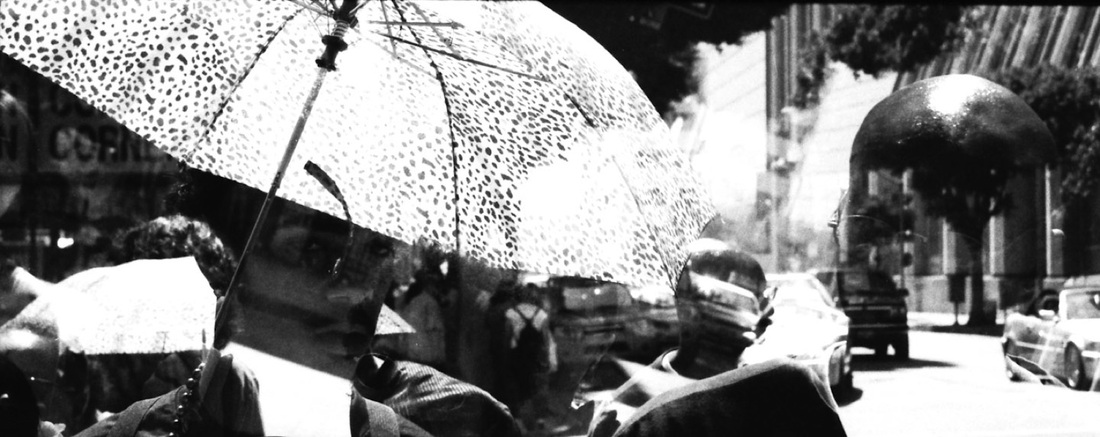
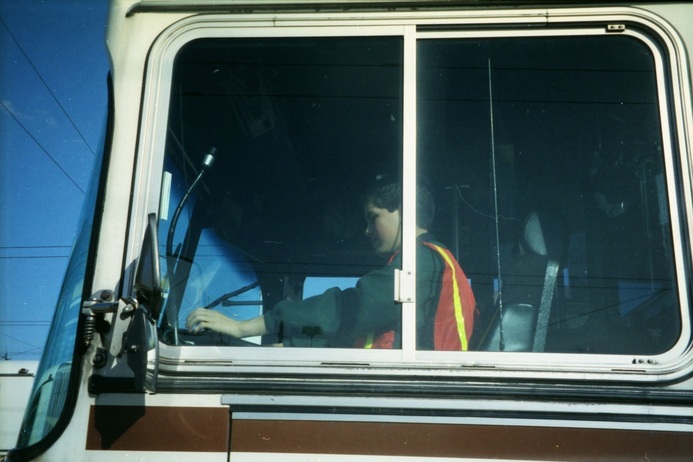
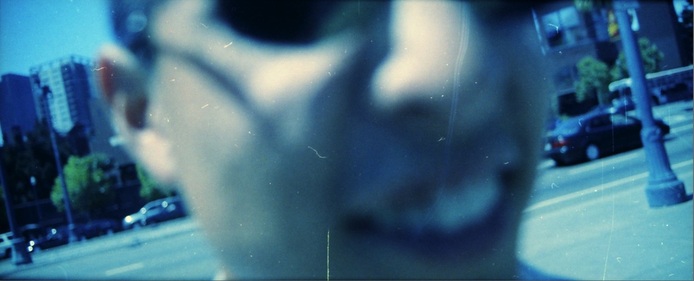
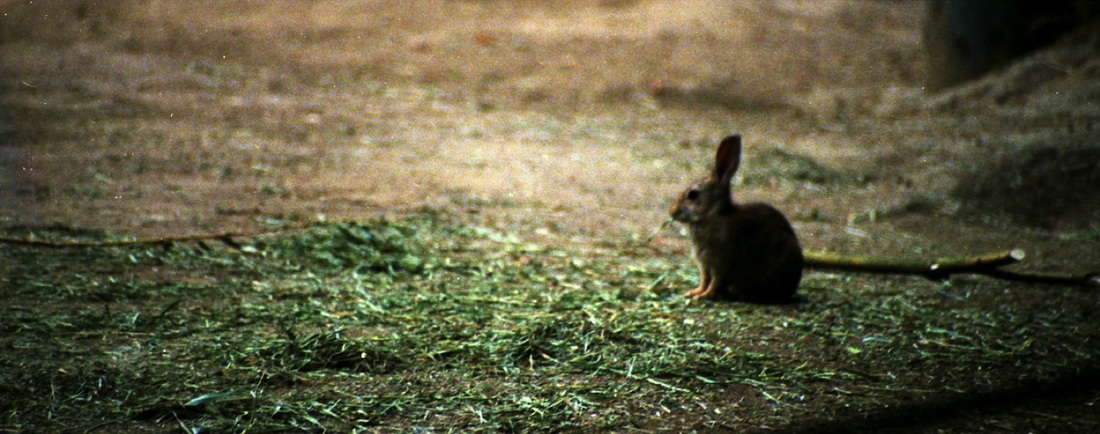
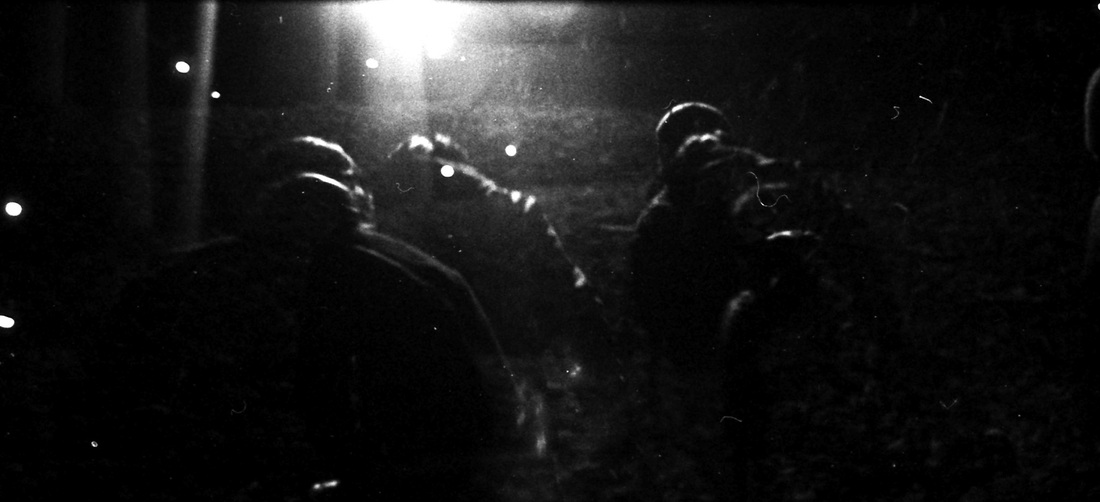
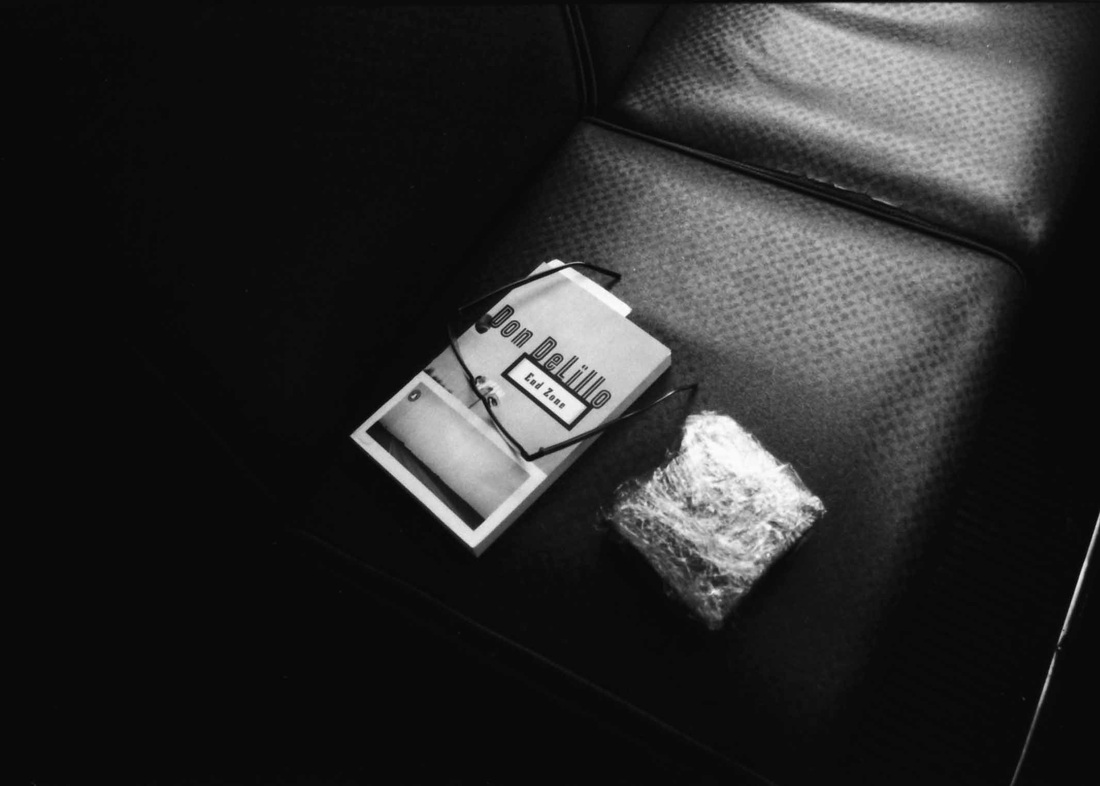
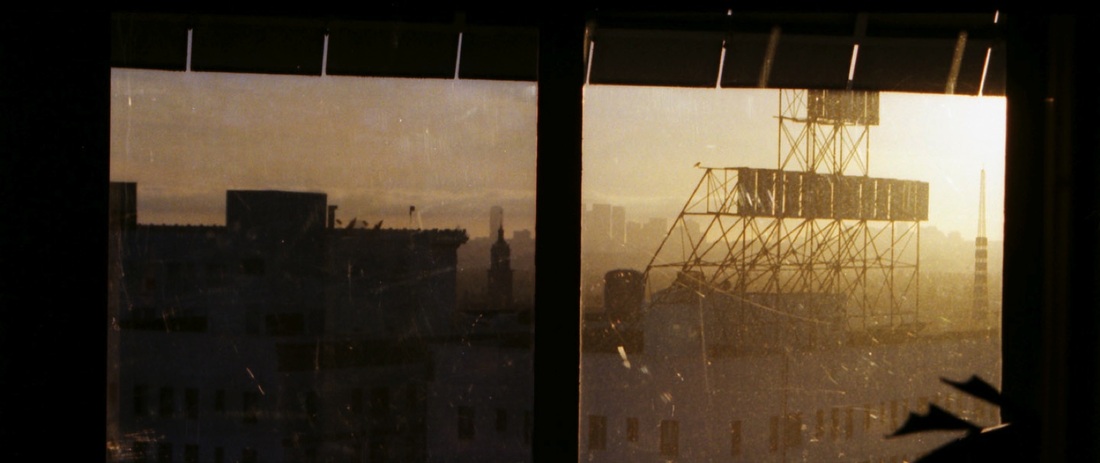
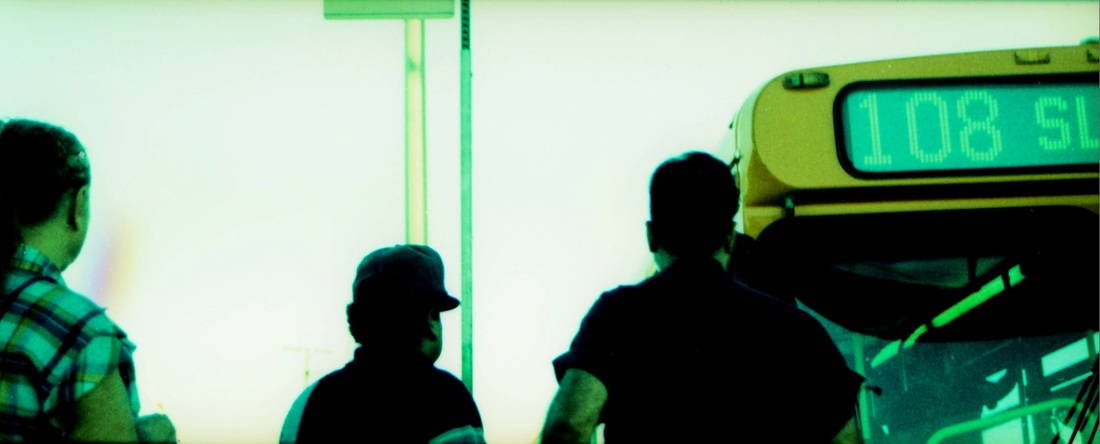
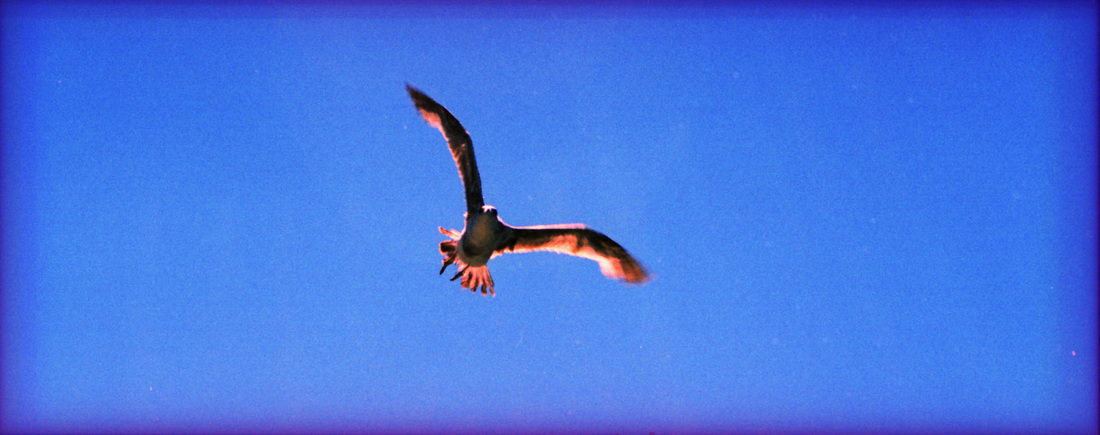
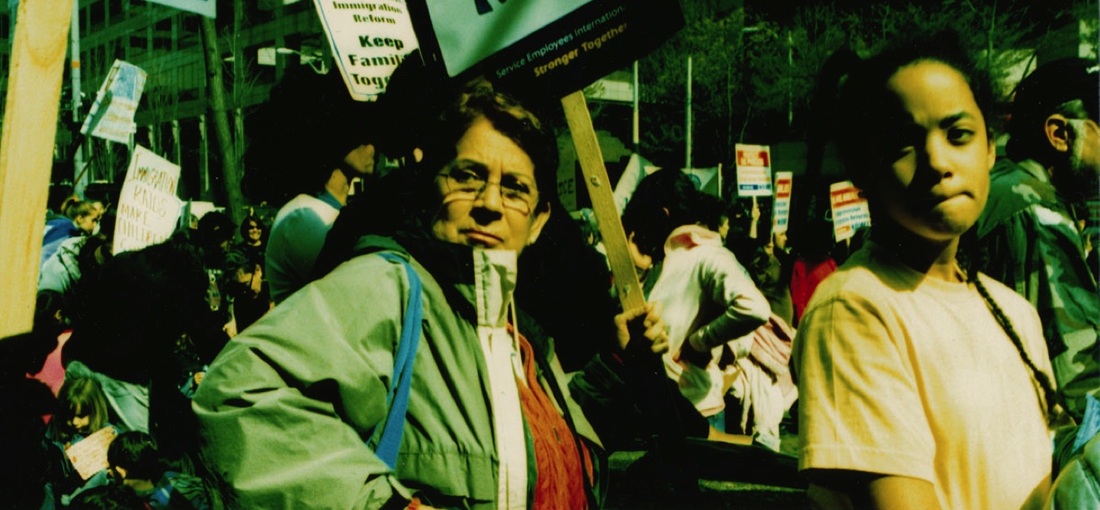
 RSS Feed
RSS Feed
